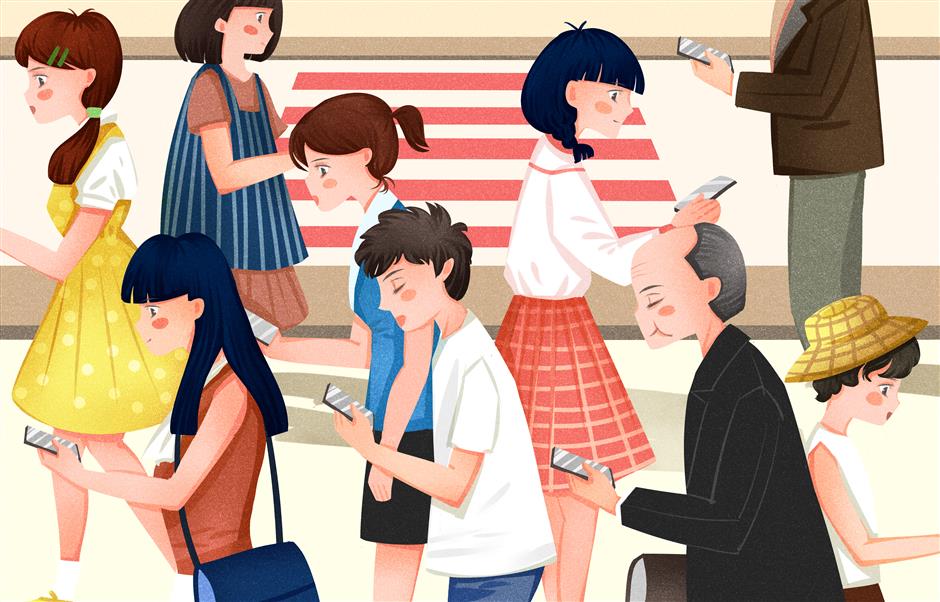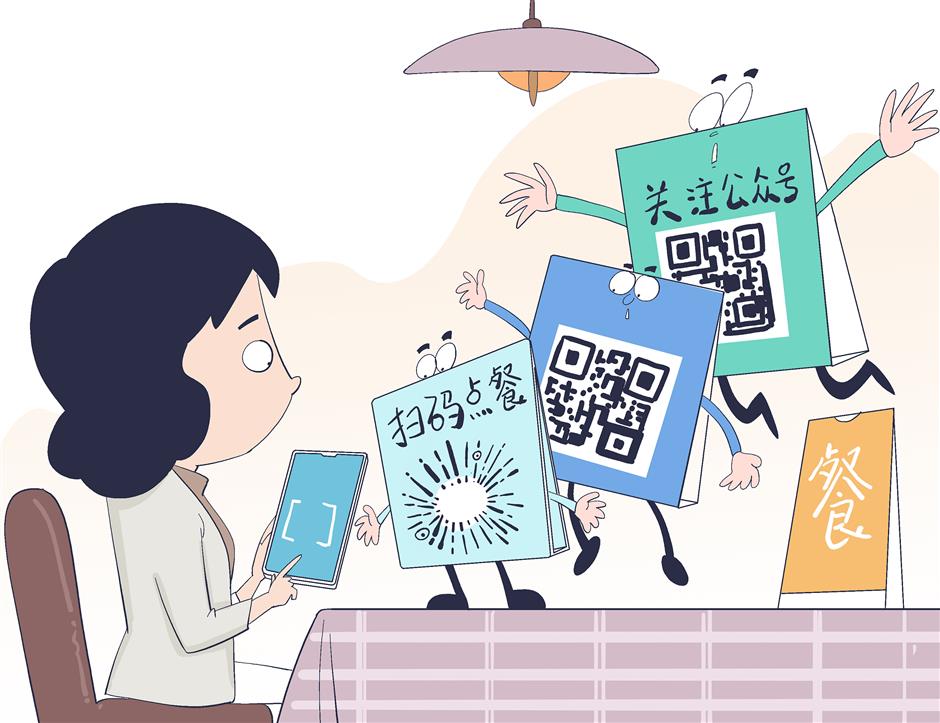Digitally bound: the app-ification of our lives

Life before smartphones... remember that?
As a balinghou – born in the 1980s – or a millennial, in the common Western generational lexicon, I do remember, as I didn't get my first smartphone until my early 20s.
Of course, a lot of you will be laughing at that sentence. I didn't say I was old. Just old enough to know what "hanging up" a phone originally meant.
Mobile technology has transformed the way we communicate and interact with the world since it burst onto the scene. The world's first mobile phone call was made in 1973 on a Motorola device that was approximately the size of a Webster's dictionary. The technology was far from widespread or accessible to most people at that time. In later decades, as devices gradually shrank, prices dropped to more affordable levels, and infrastructure for mobile communication improved, allowing the devices to enter homes and pockets alongside, and eventually replacing altogether, wall- and cord-bound telephones.
It's even been quite the shift in the technological zeitgeist since I first moved to China in 2009 with my brand new iPhone 3G that I couldn't even use here without some technological fiddling (who remembers Cydia?) My first year was spent mostly using a flip phone and sending SMS messages with the nine-button keypad until I'd saved enough dough to get a smartphone that wasn't locked to my telecom carrier back home.
In any case, the days of carrying paper are nearly completely behind us. Paper money, paper maps, and paper books are all a rare sight indeed, especially in Shanghai today. Smartphones are now so ubiquitous that they are essentially a requirement for basic tasks in modern, urban life. The pandemic era particularly underscored that point.
This technology affords us quite a level of convenience, but there are certainly pitfalls as well.
When Apple first debuted their iPhones and introduced the idea of an "app" – their advertisements mentioned all sorts of situations and tasks, and proudly proclaimed, "There's an app for that!" Nowadays, that's common knowledge, if not painfully obvious. There are countless apps for nearly anything we need to do; so much so, in fact, that there are apps for tasks we don't need or want them for that seem to cause more hassle and hangups than just doing things manually.
Either way, it is undeniable that having a pocket-sized device that would have been considered a supercomputer just a couple of decades ago does facilitate a lot of positive things. Even the stodgiest of Luddites must admit that communication is so streamlined and convenient now that the gap between 2000 and 2022 is essentially the same size as that from 2000 back to the days of the Pony Express.
Payment, too, is admittedly far easier and more convenient via mobile app. China, in many respects, led the way on this one, as we were using WeChat pay and Alipay for nearly everything for quite some time before many other countries were. Even today, I'm not sure there's another country that uses apps to pay for essentially everything. When was the last time you touched paper money? I don't even carry a wallet at this point.

It is true that some people, in some instances, might prefer not to have their payments tracked and traced, as is part and parcel with smartphone use. But using QR codes instead of cash or cards is safer in terms of preventing fraud or theft. Each code is unique and temporal, as opposed to the RFID chip on many bank cards that can be corrupted or its information stolen by a passerby with ill intent and a malicious device designed for that purpose.
And cash, to quote one Mr Omar Little, "ain't got no owners, only spenders." Lost cash doesn't have your name on it. But it's nearly impossible to access the data from a lost smartphone, much less siphon funds from its owner's bank account.
Cab-hailing and ride-sharing apps are also, of course, of great use. Apps for listening to music, keeping up with news and sports, learning and practicing languages, purchasing tickets for transportation, and countless more tasks undeniably make life easier. Even mindless mobile games can be therapeutic during stressful times.
But I would be remiss if I didn't leave a little space to complain about the aspects of the app era that annoy me. I imagine that some readers may agree on some of these points...

I absolutely loathe ordering food at restaurants by scanning the app stuck on the tabletop and choosing items from the digital menu. First of all, the mini-programs ask for your personal information – not sure why the hot pot or the dumpling joint needs that – and they often send unwanted advertisements later on. Also, I need to speak to a human being when ordering my food and know that they heard me and got it all down. Restaurants sometimes forget or misplace things – I get it, I worked at restaurants during my time as a student; the back of the house is a hectic place. But the feeling of waiting at the table for your food and drinks without knowing what's going on and whether they got the message is, at least for me, unduly stressful. Additionally, digital menus don't allow for special requests for particular items either.
It's simply easier to speak to a person than to try to navigate digital menus, while sometimes getting booted from the app, or hitting the wrong button and having to start over... I just find it terribly annoying.
The next one, though, transcends the realm of the irritating and plunges into the depths of hair-pulling fury. Many expats in China will feel my pain on this.
How many times, when using an app or other smartphone conduit to register for something – make an appointment, use a service, anything – have you found that when it came time to enter your personal identification number, only a Chinese shenfenzheng, or national ID card, was available as an entry option?
This creates an immediate stonewall dead end. Whatever you were trying to do just simply can't be done without asking for help from someone else, calling a customer service number, or finding another get-around, if one even exists. Fortunately, most apps do offer the option to use a passport number or other kind of ID number... but not all!
I took a trip to a relatively remote area in northern China last autumn, and the designers of that province's health code app seemingly hadn't considered this issue. I was completely unable to get a green code – or a code at all – during my time there; a time when, as we know, a green code was more than necessary to do essentially anything at all.

I won't recount the details of this intensely frustrating predicament; I'm sure you can imagine some of the difficulties, and I don't want to descend unto an uncontrollable fit of shouting in this quiet office whilst reliving it.
Now, the era of code-checking has come to a close, but this problem still exists across a number of platforms. I recently had to cancel a trip to watch a football match because the app on which the limited number of tickets were sold also had no entry method for international passports.
I'll end the rant here, but, in my opinion, digital apps for registering for important events, documentation, and other services are convenient if just an option but can be quite the opposite when mandatory for completing the task at hand.
Also, for many, myself included, the general idea of being hopelessly bound to anything, especially a little device, is off-putting. But, if we're honest with ourselves, it is the reality of the modern world for so, so many people. We are forced to purchase these devices – which aren't cheap! – and pay money each month to one of a select few mega-corporations for their use. This is another issue in our modern world, but I'll digress on that point.
Losing or breaking our phones is a huge problem and can seriously interrupt our lives, both at work and socially. Our devices really own us just as much as we own them.
Then again, I live on my phone and wouldn't give it up. I certainly wouldn't go back to the pre-digital era even if that possibility existed. Quite the conundrum, it is indeed.
















